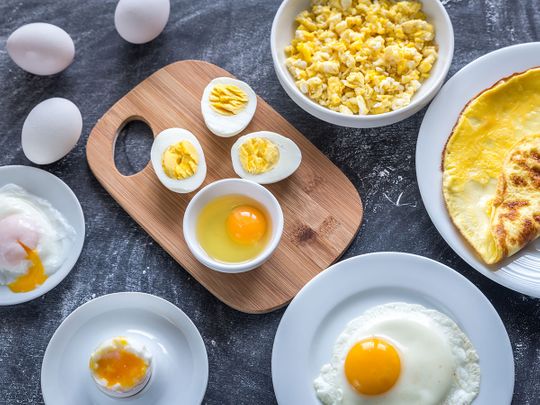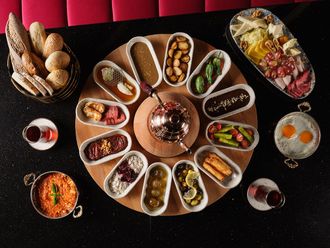
Are you one of those people who still toss out the yolk thinking it will keep cholesterol at bay? Then not only are you chucking out all the vitamins and minerals along with the fats housed in the yolk but also some of the protein.
“According to a study released by the American Heart Association, people who eat one egg — or two egg whites — a day lowered their risk for cardiovascular disease including those with pre-diabetic and type 2 diabetic conditions,” says Rola Fakhri Al Talafha, nutritionist at Bareen International Hospital, Abu Dhabi. So there is no reason to exclude eggs from your diet, however she suggests limiting it to one whole egg per day to keep cholesterol levels low.
But what’s the best way to harness all the nutrients that an egg offers? Cooking eggs on a lower heat for a shorter time help some nutrients become more digestible, prevent damage to others and cause less cholesterol oxidation, explains Sreela Nair, Clinical Dietitian at Mediclinic City Hospital. “For this reason, poached and boiled eggs — either soft or hard — may be the healthiest to eat.” Poaching cooks the white killing the disease-causing bacteria in it while the raw yolk preserves all the vitamins and micronutrients for quick absorption. If you dig soft-boiled eggs, that’s one more reason to not go all the way while boiling eggs.

Poached and boiled eggs — either soft or hard — may be the healthiest to eat.
Scrambled eggs can be a healthier choice if you avoid butter and go easy on the oil, say the nutritionists. “Each teaspoon of oil contains 43 calories and 4.5g of fat, so a single scrambled egg with one or more additional ingredients can add up to a minimum of 115 calories,” adds Rola. So give the milk and cream a miss if health is a priority.

Each teaspoon of oil contains 43 calories and 4.5g of fat, so a single scrambled egg with one or more additional ingredients can add up to a minimum of 115 calories.
Fried egg fans better use an oil that is stable at high temperatures such as sunflower oil so that it doesn’t oxidise easily to form harmful free radicals, says Nair. Rola suggests using olive oil, which has a low smoking point. But be sure to keep an eye on the calories while using oil or butter for cooking. A fried egg contains about 130 calories as against 77 in a boiled egg.











